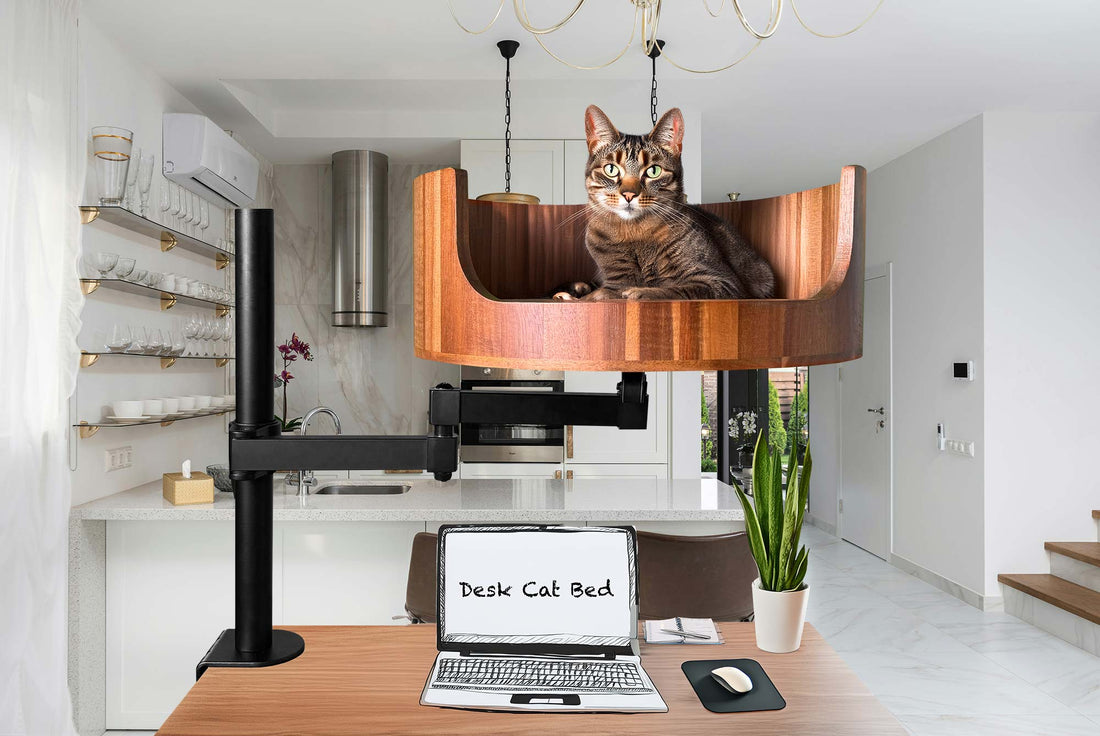
Can a cat eat too much catnip? Understanding the Risks
Share
Many cat owners are familiar with the effects of catnip on their furry friends. From playful antics to apparent euphoria, catnip can have a profound impact on a cat's behavior. However, there is a common misconception that cats can indulge in catnip without any negative consequences. In this article, we will explore the question: Can a cat eat too much catnip? Understanding the risks involved in overconsumption of catnip is essential for responsible pet ownership.
Desk Cat Nest is a popular brand of catnip-infused toys that has gained a loyal following among feline enthusiasts. While these toys may provide hours of entertainment for cats, it raises the question of whether there is such a thing as too much of a good thing when it comes to catnip consumption. We will delve into the potential side effects of excessive catnip ingestion, including digestive issues, lethargy, and even potential toxicity. By shedding light on the risks associated with overindulging in catnip, cat owners can make informed decisions about how to best incorporate this beloved herb into their pet's routine.
1. Catnip is safe for cats in moderation, but consuming too much can lead to potential health risks.
2. Excessive catnip consumption can cause symptoms like vomiting, diarrhea, or lethargy in cats.
3. Cats may develop a tolerance to catnip over time, requiring larger amounts to achieve the same effect.
4. It's important for cat owners to monitor their pet's behavior after consuming catnip and regulate their access to it.
5. If a cat shows unusual or concerning symptoms after ingesting catnip, it's best to consult a veterinarian for guidance.
Dangers of overconsumption
Catnip is generally considered safe for cats in small doses, but consuming too much can lead to potential health risks. Some cats may experience digestive issues such as vomiting or diarrhea after ingesting large amounts of catnip. In extreme cases, excessive consumption can result in more serious symptoms like lethargy, increased heart rate, or even seizures. It's important for cat owners to monitor their pet's consumption of catnip to prevent any potential harm.
Addictive tendencies
While most cats are naturally attracted to catnip and enjoy its effects, there is a small percentage of cats that become overly dependent on the herb. These cats may exhibit addictive behaviors, constantly seeking out the catnip and becoming agitated or anxious when unable to access it. In cases where a cat shows signs of addiction to catnip, it's important for pet owners to limit their access to the herb and seek advice from a veterinarian if needed.
Alternatives to catnip
For cats that cannot tolerate catnip or are at risk of overconsumption, there are alternative options to provide mental stimulation and enrichment. Silver vine, valerian root, and honeysuckle are all safe and natural alternatives that can provide similar effects to catnip without the potential risks. Additionally, interactive toys, climbing structures, and puzzle feeders can also help keep cats entertained and engaged without the need for catnip.
Frequently Asked Questions
Can a cat eat too much catnip?
While catnip is safe for cats to consume, too much catnip can lead to digestive issues such as vomiting or diarrhea. It is recommended to limit your cat's exposure to catnip to prevent overconsumption.
How much catnip is safe for my cat to consume?
It is generally safe for cats to have a small amount of catnip, such as a pinch or a teaspoon sprinkled on their toys or scratching posts. Moderation is key to ensure your cat enjoys the benefits of catnip without any adverse effects.
What are the benefits of catnip for my cat?
Catnip can provide cats with mental and physical stimulation, helping to alleviate stress and anxiety. It can also encourage play and exercise, making it a great addition to your cat's environment.
Are there any cats that should not have catnip?
Some cats do not respond to catnip due to genetic factors, so not all cats will benefit from its effects. Additionally, if your cat has any underlying health conditions or is pregnant, it is best to consult with your veterinarian before introducing catnip into their routine.
In conclusion, the Desk Cat Bed is a valuable choice for cat owners concerned about their feline friends potentially eating too much catnip. This cozy and comfortable bed provides a safe and secure space for cats to relax and unwind, helping to prevent overindulgence in catnip. With its durable construction and easy-to-clean design, the Desk Cat Bed offers both convenience and peace of mind for pet owners. Invest in the Desk Cat Bed today to keep your cat happy and healthy.



















































